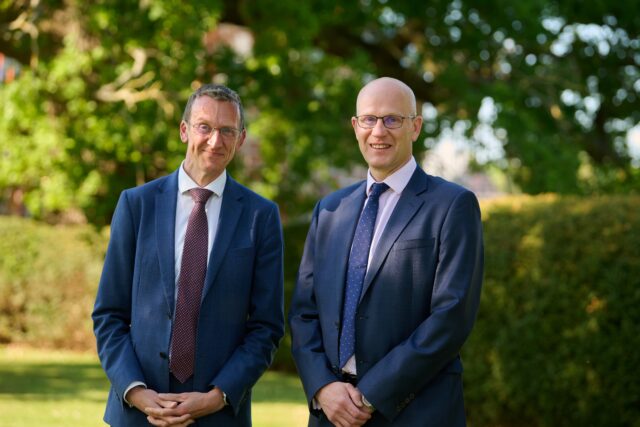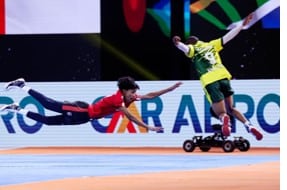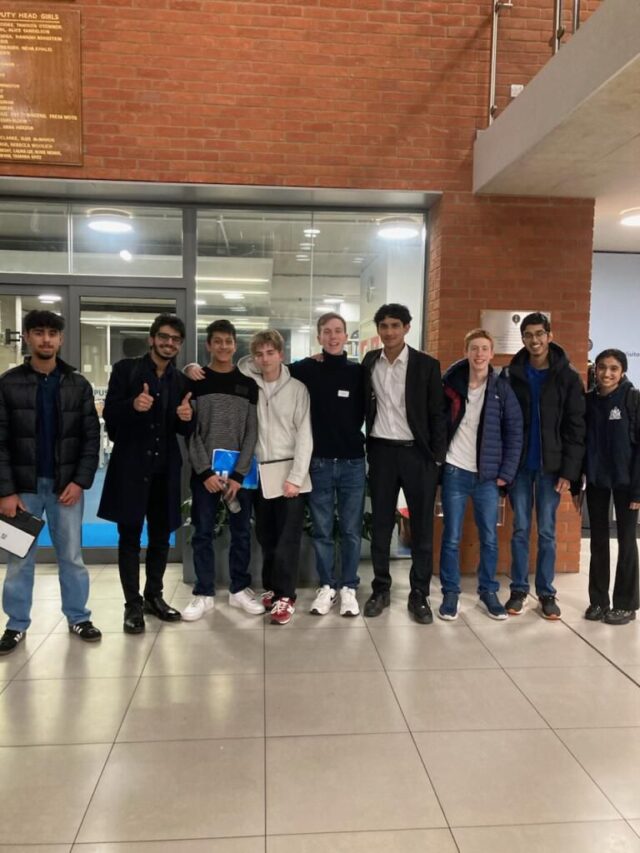
Given recent advancements in Robotics, Artificial Intelligence and Programming, what are the job opportunities of the future?
Alex – a key member of our VEX Robotics team – is explaining to us where he thinks the future is heading. Comparing autonomous programming to human operation, he points out the advantages and disadvantages of each.
VEX is an international competition where teams are challenged with designing, building and programming a robot to complete a set of tasks. A key part of our co-curricular programme, it has tested some of our best engineers to challenge themselves with some truly 21st century thinking.
Daniel Samuel – a team leader of one of our Year 8 groups – explains to us a little more about the competition. VEX requires students to build a robot out of plastic pieces that can be programmed to move cubes into designated areas. Students are then required to stack the balls on top of the cubes, therefore scoring points.
One of the most interesting comments Daniel Samuel makes about the competition concerns the importance of teamwork and collaboration. Aware that his team have different strengths, he mentions:
“We didn’t designate roles at the beginning, but we knew we had different skills. We knew that some of us were stronger at building, others at programming, others at driving.”
With the team assembled, the designs sketched and the problems discussed, Daniel Samuel highlights the most important part of the team building experience. This was developing the skill of decision making:
“People often have split views on what our priorities are. For example, one team member wanted to start developing a ball intake system, whilst another wanted to focus on an arm to pick up the cube. In the competition, the cubes are worth a lot more than the balls, so we talked through this together and made the call to focus on the arm.”
This wider discussion of competing priorities leads us onto Alex and his knack for problem solving.
Earlier in the feature, we mentioned Alex had some strong views on the differences between human and robotic understanding.
This difference has a direct bearing on the competition. As Alex explains, VEX has two components. The first requires that the robot follows a code to pick up the cubes and balls; but the second requires the robot being driven by a human.

Oli is in Year 10 so has already had one year’s experience competing in the Vex competitions. In fact, last year his team were so successful that they came back to Habs with some silverware:
By deepening their understanding of programming, robotics and artificial intelligence, VEX is a great example of how our pupils are developing truly 21st century skills for forthcoming exams, the modern workplace – but also for the excellence in education that we stand for.
We wish both our teams the best of luck in their forthcoming competitions and for the subsequent challenges of the year ahead!
Many thanks to Daniel Samuel, Alex and Oli for taking the time to talk to us – and of course the DT Department, especially Mr Hughes Caley and Mr Ryan, for their tremendous support of this competition.
Related posts
See all posts





